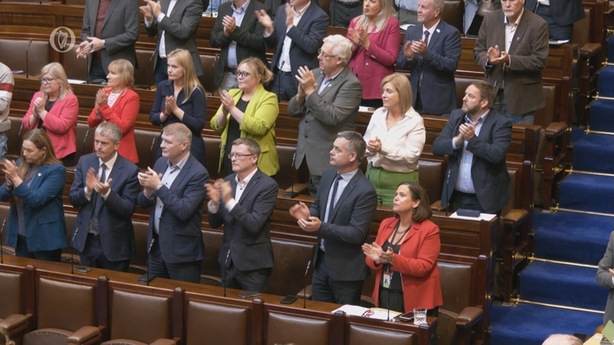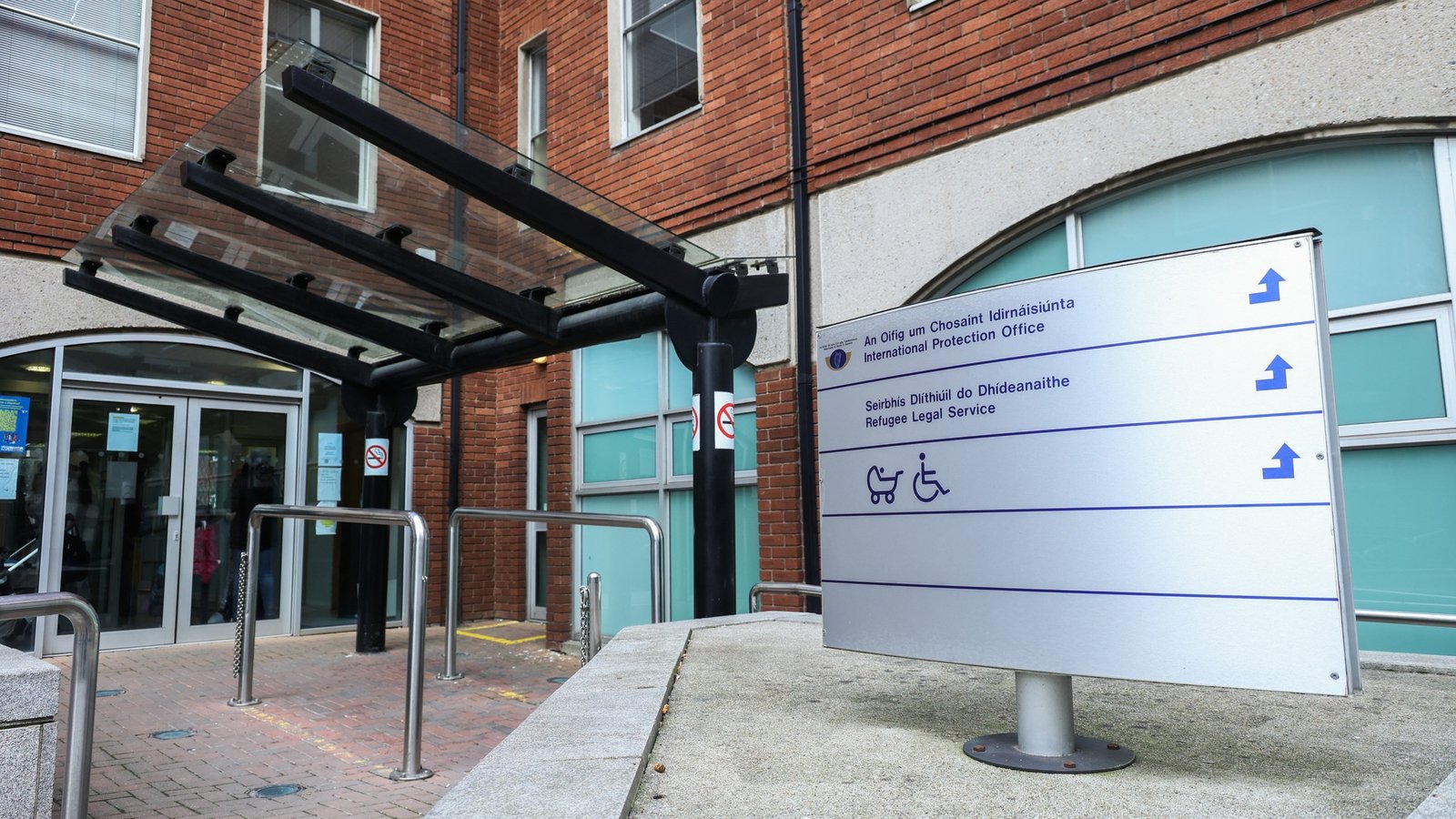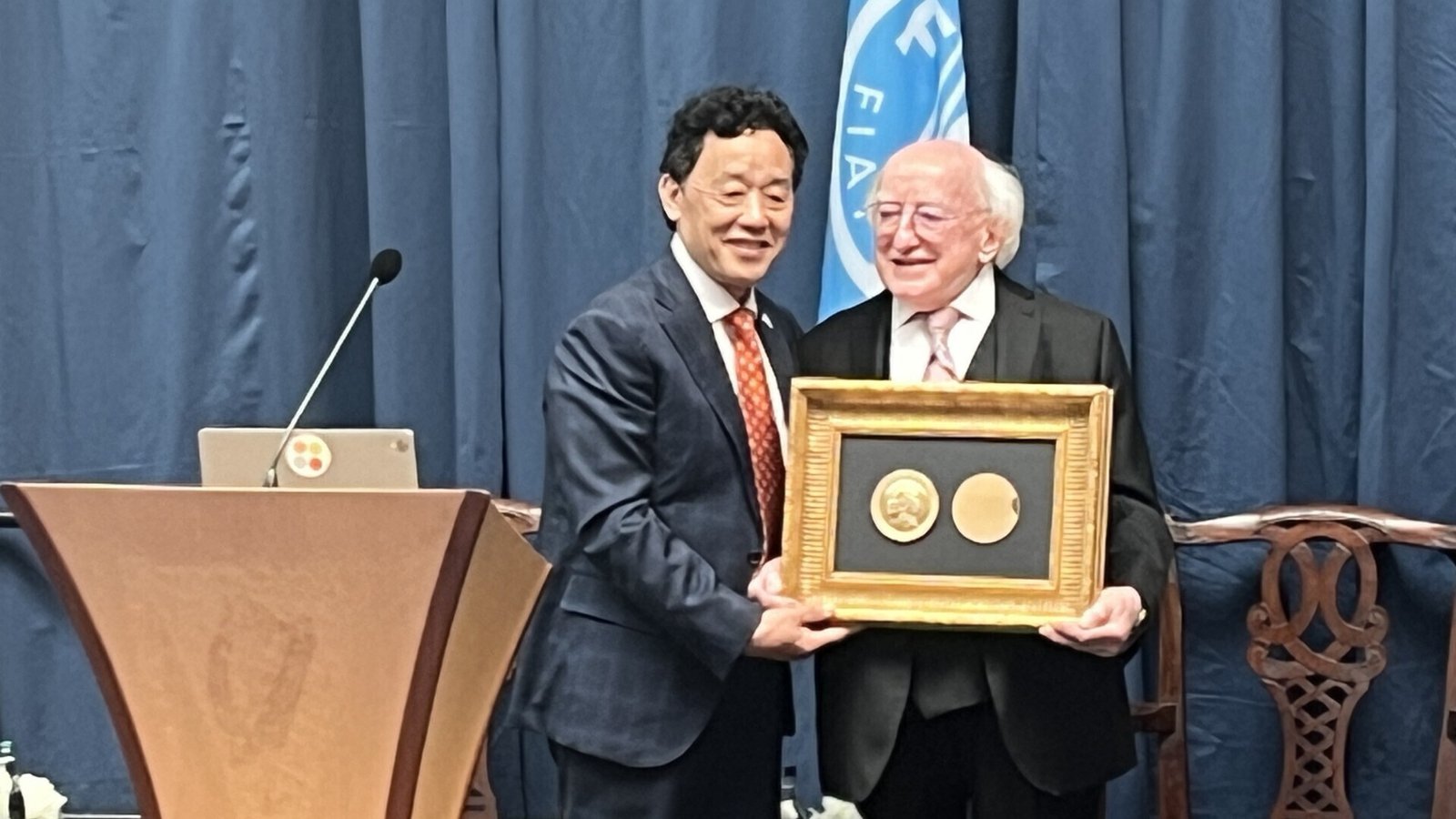O’Brien assault case opens Pandora’s Box for Government

The reaction was visceral, and almost united.
How could someone who bragged on social media about knocking a woman unconscious walk free from court?
And what if that person was a serving soldier?
Protests in solidarity with Natasha O’Brien have been held across the country since she expressed her shock at the suspended sentence handed down to her attacker, Private Cathal Crotty.
Support was also demonstrated in the Oireachtas, where politicians condemned the attack.
Ms O’Brien received a standing ovation in the Dáil, with Ceann Comhairle Seán Ó Fearghaíl telling the 24-year-old “we are on your side.”
The Taoiseach praised Ms O’Brien, saying it was important that survivors of gender-based violence are heard.

Simon Harris went further, saying he hoped there wasn’t a person in the country who didn’t take sexual and domestic, sexual and gender-based violence seriously.
He praised Justice Minister Helen McEntee for her work in the area, saying she “has put in place a zero-tolerance strategy.”
“What has clearly been seen and I can’t comment on specific court cases, but what we’ve seen is how far we’ve to go to get to that point.”
“I think this raises a number of specific issues, and I’ve to speak more broadly than on the specific case. Judicial training, sentencing guidelines, the work of the Judicial Council, I think they’re all practical actions that all need to absolutely be considered in terms of the steps.
“I think we also have to be very conscious, again without talking about the specific case, that part of the system does allow a DPP to appeal any sentence that he or she believes to be too lenient or indeed inappropriate in any way. So, the legal proceedings and process may not yet have ended, that remains to be seen…but once that window has closed, I’d absolutely want to meet Natasha O’Brien.”
Could the Taoiseach have overstepped the mark with these comments, in light of the Constitutional provision for the separation of powers?

Dr Laura Cahillane from the University of Limerick doesn’t see any issue with Simon Harris’s comments.
“For years, there was never any acknowledgement that judges might need specific training in certain areas,” but rather an expectation that their years of experience with the law was enough, she said.
“But more recently it’s become more acceptable to note that training would be helpful, for example, in dealing with vulnerable witnesses.”
“Judges have a huge amount of discretion in sentencing, that’s why we now have the Judicial Council,” she added.
The Judicial Council was set up in 2019, and among its functions was the establishment of sentencing guidelines.
On Tuesday, the Taoiseach said the Government was seeking an update in relation to sentencing guidelines and that it’s urgent that they are put in place.
But Dr Cahillane said the committee tasked with preparing the guidelines has “a huge body of work before them” because Ireland has not had sentencing guidelines up until now.
There’s a vast amount of data that needs to be collected on specific sentences, she said.
Asked about the Government being given the guidelines before they were published, a spokesperson for the Judicial Council said there was no role for Government in the preparation of the sentencing guidelines.
The secretary to the Council said: “The process for sentencing guidelines as provided for in the Judicial Council Act 2019 envisages that the committee charged with drafting guidelines furnishes them to the Board of the Judicial Council for subsequent adoption by the entire Judicial Council.
Sentencing guidelines are not intended to be furnished to the Government at any stage in the process and under the Act there is currently no role envisaged for the Government.”

Asked about Simon Harris’s comments on the council and more broadly on sentencing, Dr Cahillane believes the Taoiseach was merely acknowledging that the work is ongoing.
She said a difficulty about the separation of powers would arise only where an attack was made on a specific judge.
To protect the independence of a judge, “politicians can’t comment, unless they’re thinking of removing a judge.”
Dr Cahillane said that sentencing is considered part of a judge’s general duties, not part of any possible misconduct proceedings, unless it’s so far out of normal practice, but that normally a judge’s sentencing would not come within that context.
She believed the area of minimum sentences is likely to become a point of conflict between the judiciary and the government in years to come.
If there are more crimes or areas that attract minimum mandatory sentences, Dr Cahillane thinks judges would be uncomfortable.
She pointed to the striking down of previous minimum mandatory sentences for firearms offences by the Supreme Court in 2019 in the Wayne Ellis v Minister for Justice and Equality case.
“Judges don’t like too many limits [on their independence] and there may be further difficulties.”
During the week, the controversy around the Crotty case took a new turn, when it emerged that 68 personnel within the Defence Forces have been convicted or were before the courts for a range of offences.

The information came in a report provided by the Defence Forces Chief of Staff to Tánaiste and Minister for Defence Micheál Martin, who requested it.
Taoiseach Harris said there was no place for people who have convictions in the Defence Forces, particularly convictions in relation to domestic, sexual and gender-based violence.
“I also think there’s serious consideration together we need to give, and I accept this may require change on our end too, in relation to if there are serious allegations made against somebody, what happens to them in the period of time before that allegation goes to court?
“How can they possibly be allowed continue to serve, and is there a need to change regulations in that space? There may be,” Mr Harris said.
Speaking about the report yesterday, Micheál Martin said existing mechanisms to deal with very serious offences such as sexual assault and rape were used “inconsistently” across the Defence Forces.
He said there is a need for a comprehensive independent review to “inform in a proper way any changes that may be necessary to enhance and improve existing regulations.”
Some of the cases in the report are “very grave”, Mr Martin said, and they illustrate a lack of proactive management into these cases across the Defence Forces, a lack of a central database and inconsistent approach to applying mechanisms when dealing with these cases.
He said he is still seeking further clarity and has sought the advice of the Attorney General as less than a third of these cases have concluded.
Mr Martin also said he has appointed a senior counsel, Peter Ward, saying a detailed examination is needed.
He said anyone involved in serious offences – particularly rape or sexual assault – should be immediately taken out of service without prejudice.
He said he instructed the Chief of Staff Lieutenant General Seán Clancy that those currently facing such charges should be put on what is termed as local leave.
“They are on leave essentially until the case is completed.”
The Tánaiste is meeting Lt Gen Clancy on Monday to discuss this further.
He also said the review of serious cases involving members of the Defence Forces will be historical and delve deeper than two years but did not indicate exactly how far back this will go.
More generally, he said there are certain dysfunctions within some aspects of the Defence Force’ structures and there is also some resistance to cultural change, but he said he is going to “plough ahead” with proposed changes.

Lt Gen Clancy welcomed the appointment of Mr Ward, saying his recommendations would “offer clarity on how Óglaigh na hÉierann can handle cases involving these personnel.”
He said he agreed with the Tánaiste that people with serious convictions “have no place in our ranks.”
“Let this moment be a wake up for us all. We must reaffirm our commitment to the highest standards of conduct and ensure that our ranks are filled with individuals who uphold the values we cherish,” he said.
Such comments resonate all the more powerfully, in a week when the so-called Women of Honour Tribunal begun.
Judge Ann Power, who’s chairing the tribunal said, “Establishing the truth, however worrying that truth may be, is what this tribunal has been tasked to do.”
Establishing the truth will be one task.
Changing the culture of the Defence Forces, another.





